What went wrong? 6 M’sian students talk about our education system
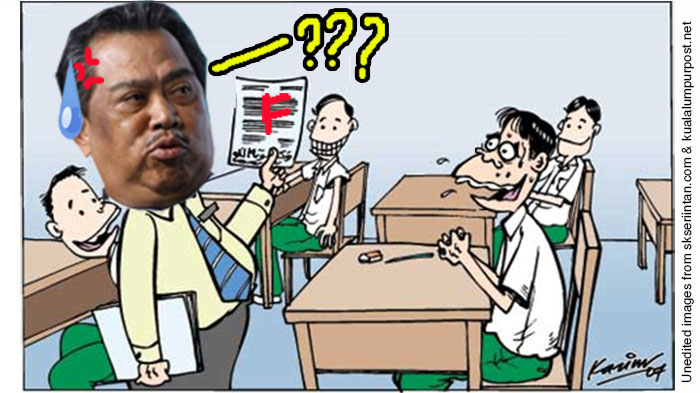
- 4.6KShares
- Facebook4.5K
- Twitter2
- LinkedIn7
- Email16
- WhatsApp40
There’s a first time for everything, and last week, it was the first time Malaysia’s education minister/deputy PM Muhyiddin Yassin expressed his regret over the performance of our local kids in international assessments.
“I, as the education minister, am shocked at the report but I have to accept that the education standards, although said to be good, is not enough.” – Tan Sri Muhyiddin Yassin, as quoted by The Malaysian Insider
Despite millions of ringgit spent to improve the system, the education standard has been going downhill. It seems that with each passing year, there are advancements in the fields of science, math, technologies and mostly everything else. Unfortunately, with each passing year, it also seems like Malaysian students are getting duller (we said seems ah, don’t scold) – but is it really their fault?
Plus, the numbers don’t lie:

From 90% passes to 80-something%. Screencap taken from the Examination Syndicate, MOE
Forgive me if I sound too forward, but as a part-time tutor, it breaks my heart to see students tossing out answers that are as wrong as Ramli burger for breakfast.
So… What gives?
6 Malaysian students, who have all gone through their fair share of years in public schools, reflect back on what they think about our local education system.
1. “Our textbook facts are way too inconsistent.” – Angelyn Ho, 23
I was giving a tuition class to one of my friend’s children and the poor innocent flower asks me, “But teacher, wasn’t Parameswara from Perlis?” First thing’s first (I’m the realest), if you didn’t already know, Parameswara was from Palembang. Palembang is in Indonesia. And he was Hindu.
But really, there has been so much controversy about facts being changed in the history books, that nowadays, not even the historians are sure of the truth. But the biggest fact-changing feud happened with the very famous (and apparently handsome) Hang Tuah, Puteri Hang Li Po, and their existence.
With everything that we’ve learnt going haywire, how would we be able to impart wisdom to the future generations of our country? We live in a country where its history is so exceptionally important to remember, but how are we supposed to remember things that are constantly changing?! Talk about bipolarity.
Angelyn adds:
“Inconsistency [in facts] causes confusion, not only amongst students, but teachers as well. And it’s worse since the teachers are heavily reliant on textbooks, rather than focusing on multiple means of education…
Educators may probably give up in ‘actually educating’ the students, because students will take it in whether what they’re being taught change or not.”
2. “We’re too focused on getting straight As in academics.” – Stephy Foong, 23
We all know that gut-wrenching feeling the day results come out.
It’s one of those days where you get to either gloat to your friends about your good results, or go home as fast as you can and cry in a corner for five days. It is a beautiful feeling when you see your report cards all in blue with As peppered across the pages, but mixed into this feeling of elation, is the feeling of relief because you know your parents won’t ask you why you didn’t do better.
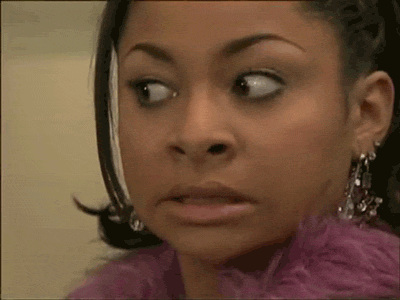
No need to kancheong like this. Gif taken from gifreactions.tumblr.com
But why are we so hooked on getting straight As in our exams?
From a young age, we had the notion that getting As was the only thing we have to do in school – but really, is it? A holistic education, one where not only the mind, but also the heart, body, and soul were exercised, was never part of our education system, and we slowly became robots to the routine of studying, regurgitating, and getting good results.
“We can learn a lot from other successful countries, like Finland.” – Robin Tan, a lecturer from HELP University
And he’s not wrong, because Finland is one of the countries in the world with the most desirable education system. Seriously, read about it here.
An emphasis on results has, in a way, made school and education something of an obstacle in many Asian countries. Students are actually so fearful of their results that some of them commit suicide if their results are below par, and the worst part is that it happens all over the world.
Society seems to have ingrained the thoughts that bad results = low self-worth = no chance of making it in the world = you is burden to your famiry.
But what many people fail to note is that there are so many types of intelligences, and that academia is just one of them. Howard Gardner identified multiple types of intelligences, so before you count yourself out because you got a C in your last Math exam, read about the different types of intelligences and see where you fit in.
3. “Most school teachers don’t know how to do their jobs.” – Anonymous, 25
One thing that can be attributed to why students aren’t getting the education they need is because the standards of teachers are declining faster than our bank accounts after GST. And sometimes, it’s not even their fault.
You find your mind starting to wander when your teacher is doing nothing but reading off the page of a textbook and not engaging in two way learning. Or if they’re doing their best to learn English so they can teach us Math and Science in English.
And while it’s true that teachers are also worked to the bone with out-of-classroom work, (like all of these things which we highlighted previously), it’s also true that sometimes, teachers are just too demotivated to carry on teaching.
First of all, teaching isn’t a desired job in Malaysia.
While everyone is running off to become doctors, lawyers, accountants and hipsters, the rate of people who are enrolling in education-based majors are declining rapidly, and that’s worrying. People have forgotten that to become what you want to become, you have to be taught the skills and have the knowledge given to you by someone.
So if there are no teachers around the teach you these skills, who’s going to teach you?
“Teaching is not seen as a respected position in Malaysia; there seems to be an idea that those who cannot do, teach.” – Mr Robin, lecturer from HELP University
This has been shown to be true in many social settings where people get that famous Malaysian judgmental look in their eyes when they hear that someone is a teacher.
“A teacher’s position needs to be elevated to a highly respected position with high pay. Then you can increase the minimum requirements for those to be eligible to be teachers,” he goes on to say, and with the minimum requirements to be a teacher in Malaysia being so low, literally, anyone can do it.
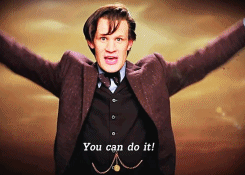
Dr. Who? Dr. You Can Do It! .gif taken from supergirlpa-s.tumblr.com
I don’t know about you, but the most inspiration my teachers ever gave me was to doodle in my books and question my place in the human race.
4. “We’re not taught to be critical thinkers.” – Caron Lai, 24
Most students are taught from their primary years that the word “but” is a bad word to teachers, because textbooks are the inescapable solid and irrefutable proof of things. Students are barely taught to be creative, to think for themselves, or to explore different perspectives, which leads to them becoming suppressed bottles of volatile emotions and energy which could explode at any time.
Not giving students the power of the “but” has lead generations of people to be passive, non-committed individuals who crave the freedom to question and pursue things, but whose minds have been stripped of all creative thought so that they’re left to just blindly follow instructions and keep silent, which may seem weird to ang mohs.
Students are not taught how to be critical thinkers, to assess problems, and to think outside of that box that everyone constantly is telling us to step out of.
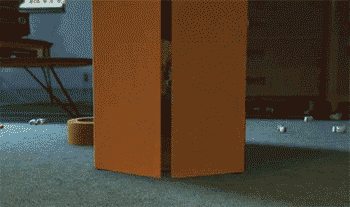
IS THIS HOW?! .gif taken from tumblr.com
This lack of freedom to ask questions or to be critical thinkers actually leaves students in a fugue when they go into college and university, because there they are required to have these critical thinking skills. Because students are taught to always remain silent, they stay silent and those who do actually have something to say, are sometimes too afraid to speak out in class for fear of being called out as a know-it-all, or someone who is trying to disturb the peace.

This picture holds so much of truth in it that it hurts. Image from thiscounselorsjourney.blogspot.com
Another student that would like to remain anonymous (such mystery, much intrigue), said that he’s tired of this constant shooting down that teachers are doing in schools.
“If I wanted my mind to be a blank slate, I would marathon Keeping Up With The Kardashians for three days then watch 50 Shades of Grey, believe me,” he says. This student is not alone in his thoughts, although in the minority of the people who feel the same way, seeing as most of the students in schools just want to go to school to get their grades and play Dota afterwards.
On the bright side, there’s the brand new PT3 examination featuring subjective questions to cultivate critical thinking among Form 3 students. However, there’s another concern with this new format: how does one decide what is correct? Can our teachers handle grading subjectivity?
5. “Our education system is turning us into zombies.” – Natalie Hew, 23
Following that train of thought, this non-critical thinking population that government schools have produced is a worrying thing. Without some form of guidance, people are left at a complete loss to do anything and without the proper problem-solving skills, life gets pretty hard really fast.
The decline in critical thinking affects a person on many levels of their psyche. Natalie Hew, 23, a Communications graduate likened it to a zombie apocalypse which actually makes a lot of sense (get ready for some The Walking Dead references).
“Think about it: zombies are dependent – they can’t think for themselves, they can’t do what they want to do because they only have one thought on their mind which is looking for people to eat, and they can’t stand up for themselves. It’s the same with a population of non-thinking, uncritical minded people.
The country will become stagnant and will most likely, deteriorate. But there will be survivors with their own unique talents that will form groups to survive – just like Rick Grimes and his group.”
If that’s the case, I think I’ll go find Rick, and incidentally, if there’s a zombie apocalypse, here are some handy tips on how to survive it.
6. “We keep believing that only stupid kids end up in the Arts stream.” – Wong Ju Yi, 23
Okay, so this is a personal pet peeve of mine (because I was in the Arts stream). I don’t understand why people, not just students, look down on the Arts stream. There’s this notion that the Arts stream is for the gangsters and the dumb, for those who just can’t do anything and for those who are probably going to end up washing the cars of those in the Science stream.
And it’s not just students who look down on the Art’s stream.
Former student Wong Ju Yi, 23, remembers her teacher telling her that she should go to the Science stream because there’s nothing the Art’s stream could offer her. “They set this impression that the “less useful” kids went to the Arts stream.”
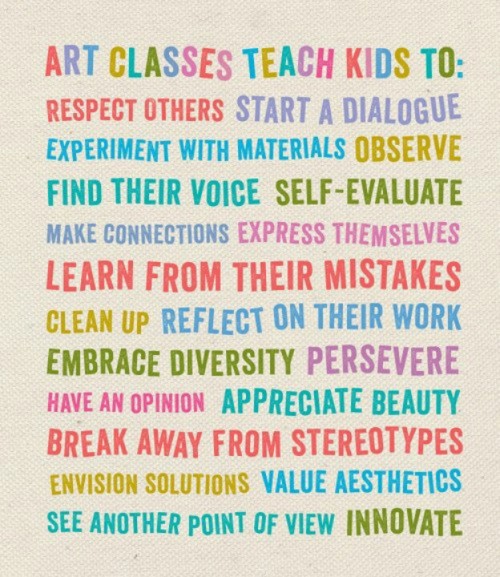
Image from whyartmatters.tumblr.com
People seem to be set on getting their children into the Science stream before birth, but what they don’t realize is that every child is different. Not everyone is left handed, and some people are colour blind, and just like that, some would do better in the Arts stream while some would do better in the Science stream. Some are meant for creative processes while some are meant for the logical and mathematical one.
But because we’re all climbing over each other to get into the Science stream to not be labelled as one of the ‘stupid kids’, some of us end up failing to play to our strengths, being pressured to learn and do things that we don’t want to do.
We need to stop perpetuating the thought that the Arts stream is a bad thing, and start allowing students to go into the stream that they want to be in.
Plus, there are so many successful Malaysians making a living out of art. You know that girl up there, Red Hong Yi? Well she’s one of the most famous artists in Malaysia and her work is brilliant. She makes YouTube videos on her art, and has become an inspiration for budding artists across Asia. Plus, she did this amazing art piece with chopsticks and Jackie Chan himself came to see it! Watch how she did it here!
Let’s do something, Malaysia.
What do we do about these problems that have been around for so long, but have gone unaddressed? One thing would be for the government to allocate more to the education sector in its annual budgets. And by that, giving people the opportunity to open more programs and help to raise the pay of teachers – something that is grossly needed.
The other would be adding a fourth and fifth dimension to the famous three dimensions of teaching – one to problem-solve and think critically, the other to focus on arts and literature… Basically, giving students a more Renaissance education would help mold them into better individuals.
Apart from that, perhaps making the curriculum and admission for teachers higher and more in-depth would provide schools with quality teachers, ones who are equipped with proper knowledge and tools to give students the education they deserve. No more half-boiled teachers, no more soft-boiled student’s minds.
On that note, there’s also Teach For Malaysia, an honourable, independent NGO calling on passionate individuals to come forth and teach the children of this nation. They’ve positively impacted children across the nation, but they can only do it one classroom at a time. Learn more about how to donate or apply to teach.
And for ourselves, the average Joes on the street? Just because we’re not educators, it doesn’t mean it’s not our place to teach. It’s our part to motivate the young ones, encouraging them to grow and invest in their future. Spark something in them. Teach them something new, something fascinating. Help them through their struggles.
Because we can’t simply depend on a system to change… Sometimes, we make the change.
- 4.6KShares
- Facebook4.5K
- Twitter2
- LinkedIn7
- Email16
- WhatsApp40

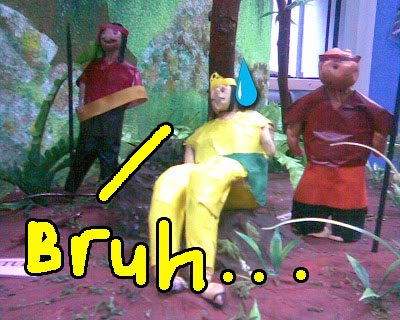
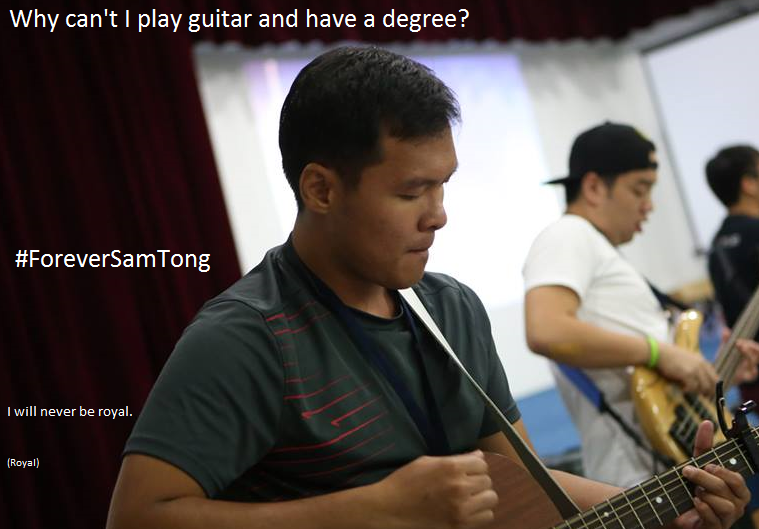


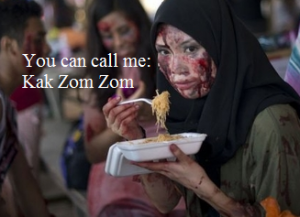
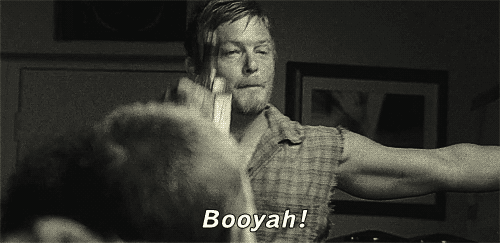


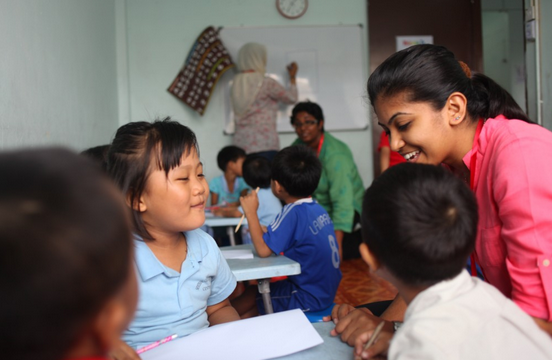






Pingback: What 6 Malaysians Think About Malaysia’s Education System | 3Buzz Now